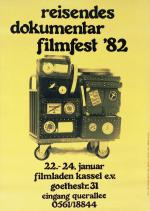
1982
Committed documentary filmmakers send their newest films about topics such as peace, nuclear power, fascism, squatting “citizens” groups and environmental degradation on a journey and one of the stops is the travelling film festival in Kassel. The travelling film festival has a strong appeal and is providing the initial spark for the future of the Kassel Documentary Film and Video Festival.

1984
The second documentary film festival takes place. Among others Leo Hurwitz’s „Dialogue with a Woman Departed“, a classic of the documentary genre, is shown. Next to current productions a small retrospective of masterpieces by Jory Ivens, LuisBuñuel and René Clair is on display

1985
„Busch singt” („Busch sings”) – six films covering the first half of the 20th century – by the famous director of the DEFA-studios, Konrad Wolf, who died during the shooting of the film, tells a chronicle in musical form. Hartmut Bitomsky presents with „Deutschlandbilder” („Images of Germany”) a film consisting of a compilation of Nazi propaganda films.

1986
„Dschungelburger-Hackfleischordnung International” („Minced Meat Order International”) by Peter Heller roughs up the world of thefast-food- industry. „Hirschhagen”, a partly reenacted documentary about a rural, forested region near Kassel, which during the nazi regime was the site of an ammunition industry and in which Jewish forced laborers and war prisoners had to work under cruelest conditions, deeply moved the audience.

1987
Klaus Wildenhahn presents his nuanced filmic portrayal “Bln.DDR & ein Schriftsteller“ in Kassel, an essayistic film about intellectual work in the GDR as illustrated by the writer Christoph Hein. The Italian group “Compagnia Mondo Nuovo” offers a historically authentic Lanterna Magica show with the original slides from the 19th century.

1989
Due to financial reasons the Documentary Film Festival had to be canceled in 1988. It gets started again in 1989. For the first time apart from films on celluloid a video section is on display, which is situated in the Café Vis à Vis. Herewith the pilot project of the “Offener Kanal“, an independent TV-station in Kassel, is conducted. Having been prepared for a long time, a series about the filmic underground in the GDR is scheduled to be one of the topics of the festival. Just a few days before the start of the festival the Berlin wall comes down.

1990
In the context of the Dokfest, a program is on display at the Kassel town hall in which films from 1896/97 are shown on the original Lumière-cinematograph No.1 by Dr. Paul Génard.

1991
The first international call for submissions is issued. The performance of “Berlin: Symphony of a Metropolis“ (1927) with live music and the concert of “Les Reines Prochaines“ with Pipilotti Rist form the highlights of the festival.

1992
The video section moves into the Kulturhaus Dock 4 and is now able to show video installations adequately. Films from Lithuania and Latvia are the main focus of the festival. Eisenstein’s “Battleship Potemkin“ (1925) is staged accompanied by the reconstructed musical score for orchestra by the South Westphalia Philharmonic Orchestra in the opera house of Kassel.

1993
This year the political dimension of the festival is evident in the presentation of several videos and films which engage with the rising phenomenon of neo-fascism. The film “Beruf Neonazi“ (“Profession neo-Nazi”) causes fierce debates and is discussed after the festival by a renowned panel in front of a large audience.

1994
Jonas Mekas shows a selection of his short films. For the first time a German university, the Academy of Media Arts Cologne, participates in the festival with an own exhibition. A two-day seminar with the topic “Deconstruction and Video” is organized.

1995
The interdisciplinary workshop-conference interfiction, that deals with the internet and its implications, is launched. For the following years an internet café named “Public Access” is created, which is meant to introduce topics like “Perspectives and Myths of Counter Public Spheres in Datanetworks” to a wider public.

1996
Matthias Müller presents the cinematic method of found-footage. Tony Oursler is honoured due to being awarded the Arnold-Bode-Award with a retrospective of his work.

1997
An independent section called Monitoring is created in cooperation with the Kassel Kunstverein. Monitoring evolves in the course of the following years into an important venue for media installations, in particular for young artists.

1998
The Dokfest is accepted as a member of the European Coordination of Film Festivals. A comprehensive retrospective of the media artist Rotraut Pape is displayed at the Kassel Kunstverein. A hommage, titled “Juwelen des Dokumentarfilms” (“Treasures of the documentary film”) retraces the work of Bert Haanstra.

1999
A new record high is attained: More than 1,000 artists and filmmakers submit their works. It is no longer possible to meet these organizational demands along the way: The Dokfest evolves into a professional business.

2000
The series “15x15” focuses on the European cinematic heritage by presenting 15 films originated in 15 European countries. The event “DVD-art-project” chartsthe artistic potential of a young and nearly unknown medium. The succes requires the most popular programs to be moved into larger spaces: In major space of the BALi cinemas 270 visitors can be seated.

2001
The Dokfest turns into a festival. With the Golden Hercules the first donated award is tendered, sponsored by the daily newspaper HNA, it awards the most outstanding regional work.
The most innovative digital work is presented with a grant by the Werkleitz Society. In addition MEDIA Plus acknowledges the European scope of the festival by granting its support. The film- and discussion series “documenta and film” and “curators + positions” is created in collaboration with the documenta Archive. The video section, the exhibition Monitoring and the workshop-conference interfiction move into the KulturBahnhof and the BALi cinemas. Due to this, the number of visitors rapidly rises up to 5,000.

2002
With the Golden Key, an additional award for the best documentary of young filmmakers is created with the help of the department of cultural affairs of the City of Kassel. In the meantime more than 1,500 works relating to the various sections are submitted to the screening committee. For the first time a joint opening ceremony comprising all sections takes place at the sold-out Gloria cinema.
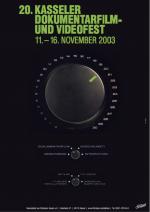
2003
In regard to the festival’s anniversary, for the first time the Golden Cube awards the best media installation of the exhibition Monitoring. The Sparkassen-Kulturstiftung Hessen-Thüringen is the first sponsor of this award, endowed with 2,500 €. On the occasion of being appointed professor at the School of Art and Design Kassel, a widespread retrospective of the work of Bjørn Melhus is on display. Celebrating its 20th anniversary, a DVD is issued which features films donated by 21 filmmakers which were part of the festival’s history.
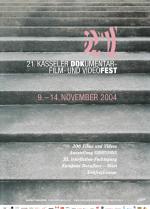
2004
This year is dedicated to the expansion of the Dokfest! The Gloria cinema is entrenched as a permanent venue at the Dokfest. It is now not only the venue where the opening ceremony takes place, but also it is the venue in which two films are shown on a daily basis during the festival. The DokfestLounge is created as a new section of the festival. Since then, changing places annually, innovative performance art and club-culture have been displayed as a platform for performance-based moving images and music. On 14 November the kick-off for the European-wide Docuzone project is given at the BALi cinema. In Germany seven cinemas participated this project. Meanwhile nearly all cinemas in Europe are digitized.
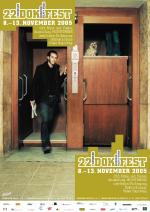
2005
Considering the more than 2,000 submitted films, videos and project proposals, the Dokfest attains an unprecedented dimension, establishing an additional record with 233 works presented at 3 cinemas. In cooperation with the backup_festival and the Bauhaus University Weimar the new developments in video reporting are explored. Numerous shows reveal and document its historical roots. Regarding this particular project for the first time, the Dokfest receives funding from the Austauschfond Ost-West (“Cultural Aspects of German Unification”) of the German Federal Cultural Foundation.
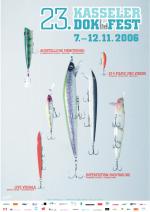
2006
The shows of the Documentary Film and Video Festival attract more than 8,000 visitors. On the occasion of awarding Hans Schabus the Arnold-Bode-Award a retrospective of his cinematic work is presented in collaboration with the Kassel Kunstverein. With the backing of the Austauschfond Ost-West of the German Federal Cultural Foundation the Werkleitz grant is upgraded to the status of the A-38 production grant and includes a production as well as an accomodation fee. For 15 years the Dokfest featured a German university in the field of film and media. Since 2006 the scope is transnational and universities from different European countries are presented. The first was the ZeLIG – school for documentary film, television and new media in Bolzano, Italy.
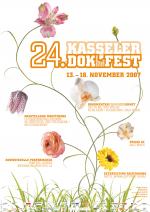
2007
Imagine the Dokfest as a meadow in bloom: more than 2,500 submissions want to colour the programms and sections. At the end of the selection process a bouquet of 235 works 16 media installations beckons the audience. A particular highlight: the film festival within the festival SPLICE IN, organised by the curators Sandra Schäfer, Regine Dura and Elfe Brandenburger, presents in the series “Gender and Politics in Afghanistan, it neighboring countries and Europe” historical and current film productions, among them eleven films premiering in Germany. The ambassador of Afghanistan attends the opening of the series in the BALi cinema. 2007 Micromata GmbH grants its support as a sponsor for the Golden Cube.
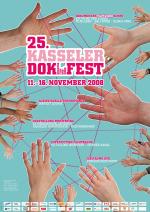
2008
To regard the 25th anniversary of the Dokfest the DVD “Berührungspunkte“ (“Points of contact“) is released. It combines 33 films and videos, which impressed and affected the curators of the Dokfest. The titels of the single compilations “Inbetween Media“, “Inbetween Space“ and “Inbetween humans“ reflect the thematical basic interests of the Dokfest.
The Machbar GmbH succeeds the HNA in presenting the Golden Hercules and following supports the Dokfest with the development of the corporate design. The attendances figures exceed 10,000 for the first time.
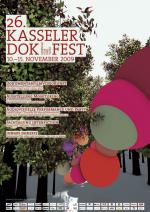
2009
Following the 25th anniversary the Dokfest receives the since years desired substantial rise of the budget from the City of Kassel. For the first time in the festival’s history the financial basis is backed and the City of Kassel stands to the Dokfest with a contract which ensures planning security for the upcoming years and inspires the development. Furthermore the Dokfest and its concept are able to win other sponsors over, which strengthen the professional develpoment. These are among others Ambion (for the technical support and presentation) and Kassel Marketing.
In cooperation with the LPR Hessen – The regulatory authority for commercial broadcasting in Hesse the festival’s proposition is extended especially for the young audience. The section junges dokfest – Dokumentarfilm sehen und verstehen enables students from the 7th school class on a creative view into the wide array of the documentary work and presents thesis through screenings and workshops, which inspire teenager and their needs and opinions. This newly created practice-oriented section of the Kassel Dokfest is greatly supported by the Hesse Film and Media Academy. Under the title PraxisDokfest professionals convey expert knowledge to film and media students from Hesse.
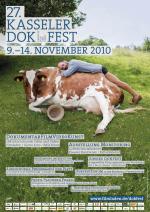
2010
2010 is the year of birth of the DokfestForum as the interface of film and art: In cooperation with the former Kunsthalle Fridericianum a place of interexchange and communication is founded. The DokfestForum connects artist talks, lectures and stage discussions with sighting places to make the individual research of the complete festival program possible.
Students of the School of Art and Design Kassel initiate the development and realization of the 1. HHFT (“Hesse Tertiary Film Day”). Supported by the Hesse Film and Media Academy the HHFT is a screening for professionals (producers, editiors, distributers), at which the most important filmic works from the art schools of Offenbach, Darmstadt, Rhine Main and Kassel are shown.
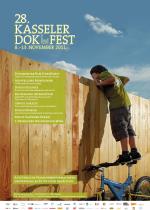
2011
The film “Versicherungsvertreter – Die erstaunliche Karriere des Mehmet Göker“ (“Insurance agent – the amazing career of mehmet Göker“) by Klaus Stern opens the 28 th edition of the Kassel Dokfest. It evokes a range of discussions and debates, but it also ensures a seven months presence in the regular program of the BALi cinemas. In summer the project mediaartbase.de starts up. A database arises out of long term digitization and presentation of media art and art documentaries. The collections encompass detailed descriptions as well as audio, video and textual material. They consist of the archives of the ZKM – Center for Art and Media Karlsruhe, of the documenta Archive, of the EMAF – European Media Art Festival Osnabrück and of the Kassel Documentary Film and Video Festival. The institutions evolved the database in due consideration of the copyright and interest of the authors and artists. Under the title “Orstverbunden“ (“locally connected“) the Kassel Dokfest presents three artists and their works who in various ways are (newly) located in Kassel: Martina Bramkamp, Mathilde ter Heijne and Kara Blake.
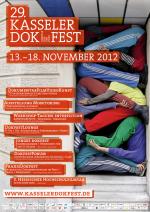
2012
The public image of the Kassel Dokfest is essentially revised. In the purpose of a manual, the catalog offers detailed descriptions of all single sections for a better orientation through the festival’s variety. Due to the subvention of the Hessian Ministry of Sience and Art and the completed digitization of the festival cinemas it is for the first time possible to project the majority of films and videos in a valuable digital format. Together with the company Speicher M1, an uploader for the presented works is developed which makes an individual online viewing possible during the festival.
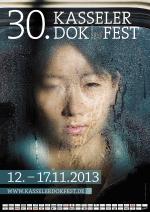
2013
The Dokfest is celebrating a variety of anniversaries, which are accompanied by diverse special events: The Dokfest is celebrating its own 30. anniversary, the workshop conference interfiction occurs for the 20. time, DokfestLounge is turning ten, junges dokfest is turning five and the former Profis Plaudern Praxis which now has the title PraxisDokfest, also goes to the fifth round. Even the sections DokfestForum and HHFT are standing with their 4th edition just before a milestone anniversary. The media art exhibition Monitoring is in its 17 years history accompanied by the thematical exhibition “Fünfuhrtee in Karibati“. Furthermore the new format DokfestConnection offers all accredited visitors a meeting spot for a better linking with the organizers of the festival. The short film contest “Nicht ohne mein Händi” (“Not without my cell phone“), which is endowed with 4,000 €, is searching for a trailer, which is calling attention to how not to use the smart phone during the screening in the cinema.


